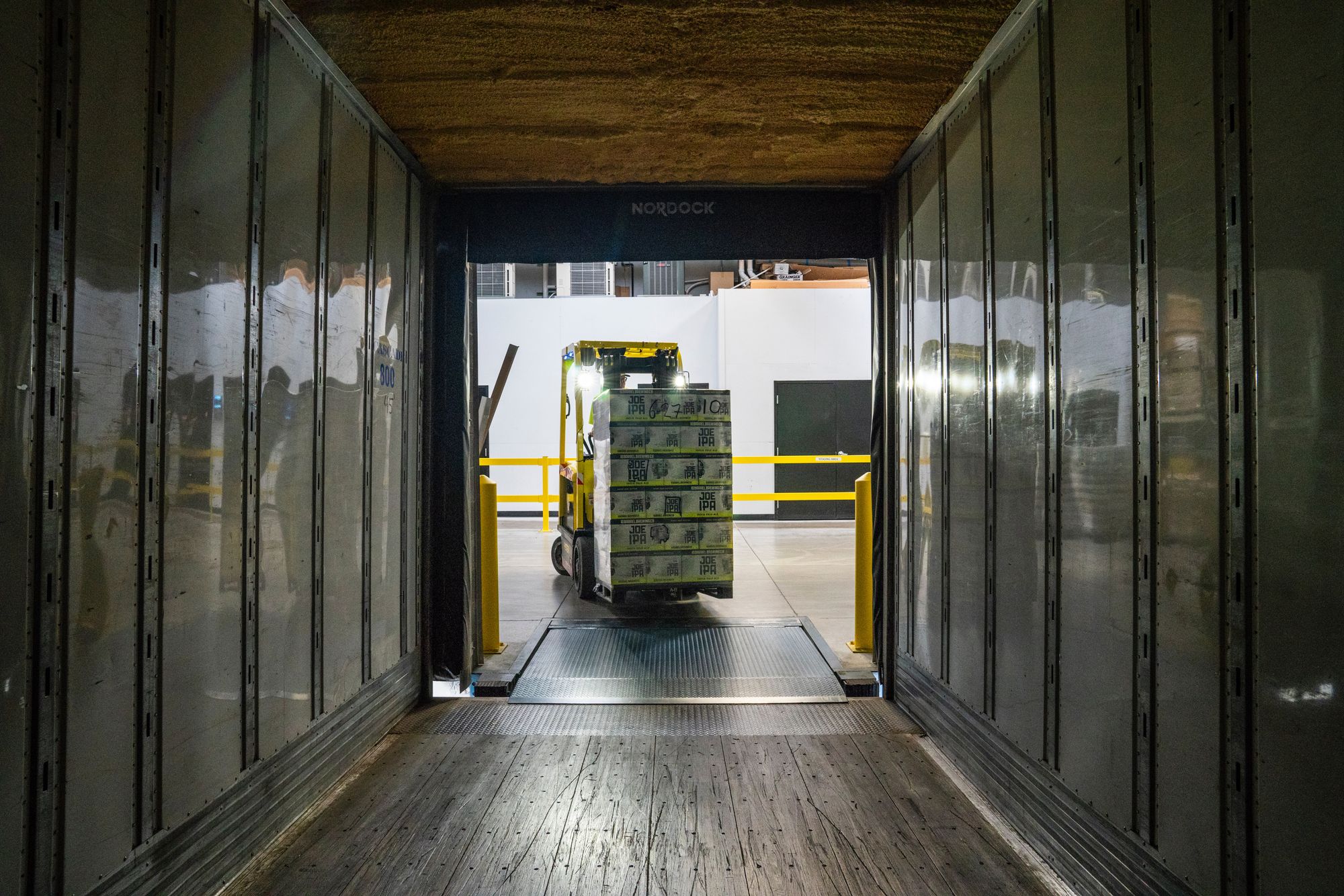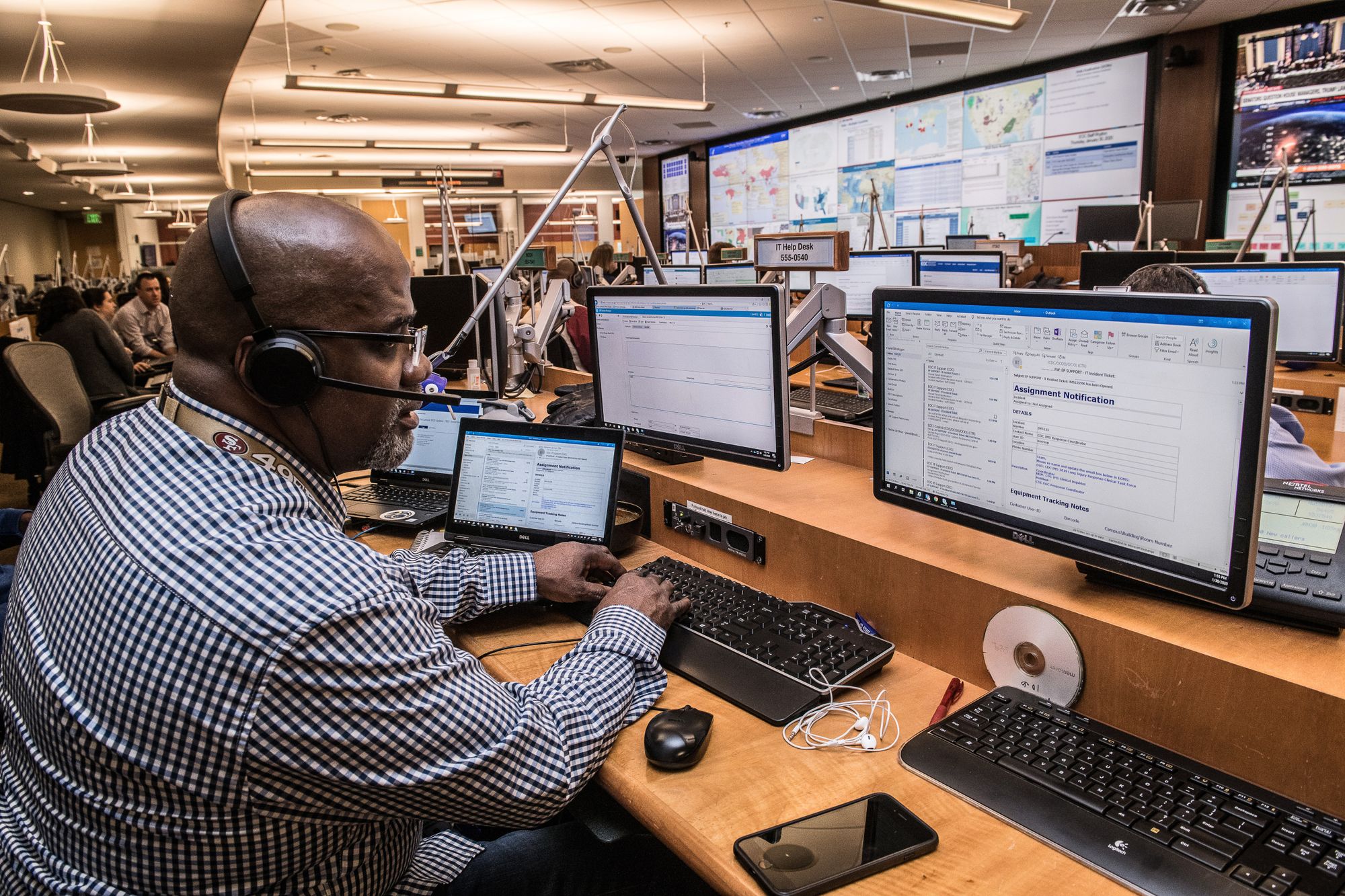Materials management is a crucial aspect of the supply chain and plays a significant role in the success of businesses in the United States. In fact, according to the National Association of Purchasing Management, materials management accounts for approximately 60% of a company's total costs.
With such a high percentage of resources devoted to materials management, companies in the US must understand the importance of this function and implement best practices to achieve success.
Materials management is an essential function within an organization that ensures the smooth flow of materials from suppliers to production and eventually to customers. It involves the planning, procurement, and control of materials to ensure that the right material is available at the right time, in the right quantity, and at the right cost.

Materials management aims to balance the conflicting goals of ensuring material availability, minimizing inventory costs, and maximizing customer satisfaction.
This article will delve into the various aspects of materials management, including the objectives, best practices, challenges, and future trends of this essential function.
Whether you are a seasoned materials manager or new to the field, this article will provide valuable insights into materials management. So, let's dive in and explore this exciting and vital aspect of modern-day business.
Here’s what we shall cover in this post:
- What Is Material Management?
- Objectives Of Material Management
- What Does A Material Manager Do?
- Material Management Best Practices
- Challenges in Material Management
- Future Trends in Material Management
- Conclusion
- Key Takeaways
What Is Material Management?
Material Management is a system that effectively controls and manages materials and supplies used in an organization. The goal of material management is to ensure that the right materials are available at the right time and in the right quantities, to support the production process and meet customer demand.
Here are some key points to consider when exploring material management:
- Material management plays a crucial role in the success of an organization by ensuring that materials are available when needed and in the right quantities.
- It helps to minimize waste and reduce costs by ensuring no over-stocking or under-stocking of materials.
- It helps to improve customer satisfaction by ensuring that orders are delivered on time and with the correct items.
- The critical components of material management include material planning, procurement, inventory control, and distribution.
- Material planning involves forecasting demand, determining the materials needed, and developing a plan to acquire those materials.
- Procurement involves sourcing and purchasing materials from suppliers.
- Inventory control involves managing the flow of materials into and out of the organization and monitoring inventory levels to ensure they remain within acceptable limits.
- Distribution involves the physical movement of materials from the organization to the customer.
Types of Material Management
The following are the different types of material management:
- Inventory Management
Inventory management involves the maintenance of a company's stock of raw materials, semi-finished goods, and finished products. It includes identifying the optimal inventory level to be maintained, determining the reorder points, and ensuring that the inventory is stored correctly.
Inventory management in an AI powered ERP aims to strike a balance between the costs of holding too much inventory and the costs of running out of stock.
- Purchasing Management
Purchasing management involves procuring raw materials, supplies, and services required for production. It consists of the selection of suppliers, negotiation of prices, preparation of purchase orders, and management of supplier relationships.
The objective of purchasing management is to buy the required materials at the best possible price and quality while ensuring timely delivery.
- Warehouse Management
Warehouse management involves the storage and handling of materials, as well as the management of the physical movement of goods within a warehouse. It includes receiving, storing, and shipping materials, as well as managing inventory levels and the location of materials within the warehouse.
The goal of warehouse management is to optimize the use of space and minimize the cost of storing and handling materials.
- Material Requirements Planning (MRP)
Material Requirements Planning (MRP) is a computer-based inventory management system used to plan production schedules and manage the procurement of materials.
MRP considers the lead time for ordering materials, the time required for production, and the inventory levels of materials. MRP aims to ensure that suitable materials are available at the right time and in the correct quantity to meet production needs.
- Transportation Management
Transportation management involves the physical movement of materials from one location to another. It includes the selection of carriers, negotiation of freight rates, preparation of shipping documents, and management of delivery schedules. Transportation management aims to ensure that the materials are delivered on time and at the lowest possible cost.
Objectives Of Material Management
The following are the five primary objectives of material management:
- Right Material
The first objective of material management is to ensure that suitable materials are available for production. It involves identifying the materials required for production and ensuring that they are of the correct quality, specification, and quantity.
By ensuring that the right materials are available, companies can minimize the risk of production delays and ensure customer satisfaction.
- Right Time
The second objective of material management is to ensure that the right materials are available at the right time. It involves managing the movement of materials within the warehouse, reducing lead times, and improving the efficiency of delivery processes.
- Right Amount
The third objective of material management is to ensure that the right amount of materials are available for production. It involves determining the optimal inventory level to maintain and implementing processes to manage the movement of materials within the warehouse.
By ensuring that the right amount of materials are available, companies can minimize the risk of stock shortages, reduce the cost of storage and handling, and increase efficiency.
- Right Price
The fourth objective of material management is to ensure that materials are purchased at the right price. It involves negotiating with suppliers to obtain the best possible prices and implementing cost-saving measures, such as reducing waste, reducing lead times, and improving the efficiency of delivery processes.
- Right Sources
The fifth objective of material management is to ensure that materials are sourced from the right sources. It involves identifying reliable suppliers, developing partnerships with suppliers, and ensuring that materials are purchased from approved suppliers only.
By sourcing materials from the right sources, companies can reduce the risk of defective materials, minimize the risk of production delays, and ensure customer satisfaction.
Importance of Material Management
- Cost Reduction
One of the primary objectives of material management is to reduce the cost of materials. It includes reducing the cost of purchasing materials, as well as reducing the cost of storing and handling materials.
Cost reduction can be achieved through effective planning, procurement, and storage processes, as well as through implementing cost-saving measures such as reducing waste, reducing lead times, and improving the efficiency of delivery processes.
- Improved Quality
Another objective of material management is to improve the quality of materials and products. This includes ensuring that the materials and products used in the production meet specified standards of quality and implementing processes to prevent defects.
Improving the quality of materials and products can help ensure customer satisfaction, improve the company's reputation, and reduce the cost of rework and warranty claims.
- Timely Delivery
A third objective of material management is to ensure the timely delivery of materials and products. This includes ensuring that the right materials are available at the right time and in the right quantity to meet production needs and implementing processes to prevent delays in the delivery of materials.
Timely delivery is critical to any business's success and can help improve customer satisfaction, reduce inventory costs, and improve production process efficiency.
- Inventory Optimization
Another objective of material management is to optimize inventory levels. This includes determining the optimal inventory level to maintain and implementing processes to manage the movement of materials within the warehouse.
Inventory optimization can help to reduce the cost of storage and handling and minimize the risk of stock shortages or obsolescence.
- Efficient Supply Chain
A final objective of material management is to ensure the efficiency of the supply chain. This includes reducing lead times, improving the efficiency of delivery processes, and optimizing the movement of materials within the warehouse.
An efficient supply chain can help to reduce the cost of materials, improve customer satisfaction, and increase the competitiveness of the business.
What Does A Material Manager Do?
A material manager oversees the procurement, storage, and delivery of materials required for production. This professional plays a vital role in ensuring the efficiency and success of a company's supply chain. The following are the main tasks and responsibilities of a material manager:
1. Facility Management
A material manager is also responsible for managing the facilities used for storing and handling materials. This includes ensuring that storage areas are secure, accessible, and compliant with safety regulations.
A material manager must also be able to manage the maintenance of facilities to ensure that they are in good condition and ready for use at all times.
2. Inventory Management
A material manager is also responsible for managing the movement and storage of materials within the warehouse. This involves determining the optimal level of inventory to be maintained, monitoring stock levels, and ensuring that materials are stored safely and efficiently.
3. Operations Management
A material manager ensures that operations are running smoothly and efficiently. This involves coordinating with production and logistics teams, monitoring performance metrics, and ensuring that materials are delivered to production on time and in the correct condition.
4. Production Planning
A material manager is also responsible for supporting production planning by ensuring materials are available when needed. This involves managing inventory levels, monitoring lead times, and ensuring that materials are delivered to production in the proper condition.
5. Cost Management
A material manager is responsible for managing the cost of materials, including reducing the cost of purchasing materials and reducing the cost of storage and handling. This involves negotiating prices with suppliers, reducing lead times, and improving the efficiency of delivery processes.
Material Management Best Practices
Here are some best practices that organizations can follow to ensure the effective and efficient management of their materials:
- Develop a comprehensive material management plan: A comprehensive materials management plan outlines the goals, objectives, and strategies for managing materials. This plan should be developed in collaboration with stakeholders such as suppliers, production teams, and logistics providers.
- Implement inventory management practices: Inventory management involves tracking and managing the flow of materials to ensure that the right materials are available at the right time. This can be achieved by using tools such as inventory software, barcoding systems, and real-time monitoring systems.
- Maintain strong supplier relationships: Strong supplier relationships are critical to the success of materials management. Organizations should work closely with suppliers to ensure that materials are delivered on time, to the correct specifications, and at a competitive price.
- Continuously monitor and analyze data: Data analysis is a critical component of materials management. Organizations should collect and analyze data on materials consumption, supplier performance, and inventory levels to identify trends and make informed decisions.
- Adopt digital technologies: Digital technologies such as artificial intelligence, machine learning, and the Internet of Things can significantly improve materials management processes. Organizations should adopt these technologies to automate and streamline their operations, reduce costs, and improve decision-making.
- Foster a culture of continuous improvement: Continuous improvement is critical to the success of materials management. Organizations should regularly review their materials management processes and make changes to improve efficiency, reduce waste, and enhance customer satisfaction.
Challenges in Material Management
Materials management is a critical function that involves procurement, storage, and delivery of materials required for production. Despite its importance, materials management is not without its challenges. The following are some of the critical challenges faced by materials managers:
- Supply Chain Management
One of the biggest challenges in materials management is managing the complex supply chain. This involves coordinating with suppliers, logistics providers, and production teams to ensure that materials are delivered on time and to the correct specifications. Materials managers must also be able to respond quickly to changes in demand and adjust the supply chain accordingly.
- Cost Control
Cost control is another major challenge in materials management. A material manager must be able to negotiate prices with suppliers, manage logistics costs, and ensure that materials are purchased at the best possible prices.
- Quality Control
Ensuring materials meet the required quality standards is another key challenge in materials management. A material manager must be able to work with suppliers to ensure that materials are manufactured to the correct specifications and delivered in the correct condition.
- Data Management
Managing data is another major challenge in materials management. A material manager must be able to track and manage large amounts of data, including supplier information, logistics information, and production information.
Future Trends in Material Management
Material management is an ever-evolving field that is being impacted by new technologies, changing customer demands, and the growing complexity of the supply chain. The following are some of the key trends that are shaping the future of materials management:
- Digital Transformation
Digital transformation is one of the most critical trends in material management. This involves using new technologies such as artificial intelligence, machine learning, and the Internet of Things to automate and streamline materials management processes.
Digital transformation is helping materials managers to make more informed decisions, reduce costs, and improve the speed and accuracy of their operations.
- Sustainability
Sustainability is another key trend in materials management. This involves reducing the environmental impact of materials management processes and ensuring that materials are sourced, manufactured, and delivered environmentally and sustainably.
This is becoming increasingly important as consumers and businesses become more conscious of their environmental impact and demand sustainable products and services.
- Collaboration
Collaboration is another significant trend in materials management. This involves working more closely with suppliers, logistics providers, and production teams to ensure that materials are delivered on time and to the correct specifications. Collaboration helps materials managers to reduce costs, improve delivery times, and enhance the overall efficiency of the supply chain.
- Predictive Analytics
Predictive analytics is another key trend in materials management. This involves using data to predict future demand and adjust materials management processes accordingly. Predictive analytics is helping materials managers to reduce waste, improve inventory management, and enhance the overall efficiency of the supply chain.
- Blockchain
Blockchain is another trend in materials management. This involves using blockchain technology to create a secure and transparent supply chain. Blockchain is helping materials managers to reduce costs, increase transparency, and improve the security of the supply chain.
How Deskera Can Assist You?
Deskera MRP allows you to closely monitor the manufacturing process. From the bill of materials to the production planning features, the solution helps you stay on top of your game and keep your company's competitive edge.

Deskera ERP and MRP system can help you:
- Manage production plans
- Maintain Bill of Materials
- Generate detailed reports
- Create a custom dashboard
Deskera ERP is a comprehensive system that allows you to maintain inventory, manage suppliers, and track supply chain activity in real-time, as well as streamline a variety of other corporate operations.
Deskera Books enables you to manage your accounts and finances more effectively. Maintain sound accounting practices by automating accounting operations such as billing, invoicing, and payment processing.
Deskera CRM is a strong solution that manages your sales and assists you in closing agreements quickly. It not only allows you to do critical duties such as lead generation via email, but it also provides you with a comprehensive view of your sales funnel.
Deskera People is a simple tool for taking control of your human resource management functions. The technology not only speeds up payroll processing but also allows you to manage all other activities such as overtime, benefits, bonuses, training programs, and much more. This is your chance to grow your business, increase earnings, and improve the efficiency of the entire production process.
Conclusion
Materials management is an essential function in any organization, as it helps to ensure the effective and efficient flow of materials from the point of origin to the point of consumption. Materials management aims to ensure that the right materials are available at the right time, in the right amount, and at the right price.
To achieve this, organizations should develop a comprehensive materials management plan, implement inventory management practices, maintain strong supplier relationships, continuously monitor and analyze data, adopt digital technologies, and foster a culture of continuous improvement.
By following these best practices, organizations can ensure the effective and efficient management of their materials, reducing costs, improving customer satisfaction, and enhancing their competitive advantage.
Key Takeaways
- Materials management is the process of planning, organizing, and controlling the flow of materials from the point of origin to the point of consumption.
- Materials management aims to ensure that suitable materials are available at the right time, in the right amount, and at the right price.
- A comprehensive materials management plan should be developed in collaboration with stakeholders such as suppliers, production teams, and logistics providers.
- Inventory management is a crucial component of materials management and involves tracking and managing the flow of materials.
- Strong supplier relationships are critical to the success of materials management.
- Data analysis is a critical component of materials management, and organizations should collect and analyze data on materials consumption, supplier performance, and inventory levels.
- Digital technologies such as artificial intelligence, machine learning, and the Internet of Things can significantly improve materials management processes.
- Continuous improvement is critical to the success of materials management, and organizations should regularly review their processes and make changes to improve efficiency.
- Materials management can help organizations reduce costs, improve customer satisfaction, and enhance their competitive advantage.
Related Articles











